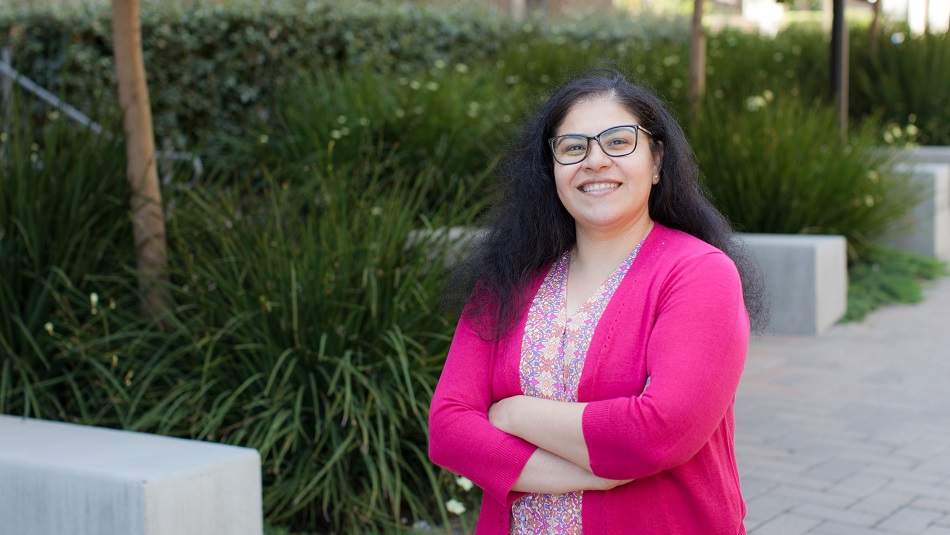
Kristine Molina researches connection between parents’ experiences of inequality and child health
How social inequality affects the mental/physical health of Latinxs and how stress in parents may be connected to obesity in their children is the focus of Kristine Molina’s current research.
“I’m looking into parents’ experiences with discrimination and how that impacts their children’s health,” Molina explains. “Latinx families deal with diifferent kinds of stressors, such as structural violence, neighborhood violence, high levels of acculturative stress and ethnic discrimination. The next step is to see how those different forms of stress impact rates of childhood obesity as well as the mechanisms that may link them together.”
Molina’s research stems from personal experience.
“Seeing the experiences of my family members and my own experiences with racial inequality in the U.S., I’ve been wanting to understand how to dismantle those inequalities so that people have equal chances for better health and for success in life,” she says. “Being able to target those social factors that go beyond the individual level can help us make change at the structural level.”
Molina joined the Social Ecology faculty this fall as associate professor of psychological science. This winter, she will teach a new course on the psychology of Latinx families, with a particular focus on social factors related to family processes. She will carry out related research with her students as part of the Research on Equity and Advancement of Latinxs (REAL) Lab.
The lab’s focus is on investigating how different dimensions of inequality, such as discrimination and resource inequality, often resulting from racism, become embodied at multiple levels to affect health across the life course.
“We focus on three interrelated areas: 1 — inequality, health, and health disparities; 2 — contexts of coping with inequality; and 3 — intergenerational transmission of inequality,” Molina notes. “We use intersectionality as the organizing framework to understand how interlocking social structures and identities shape the experiences of and the processes by which dimensions of inequality affect the health of racialized groups.”
Molina has a B.A. in psychology from Smith College and an M.A. in psychology and a Ph.D. in psychology and women’s studies from the University of Michigan. She completed a National Institutes of Health-funded postdoctoral fellowship in health psychology/behavioral medicine at the University of Miami. Prior to coming to UCI, she was an assistant professor of psychology at the University of Illinois at Chicago.
UCI’s strong interdisciplinary research emphasis is the reason Molina chose the university and she looks forward to collaborating with professors universitywide.
— Story by Mimi Ko Cruz / Photo by Patricia DeVoe